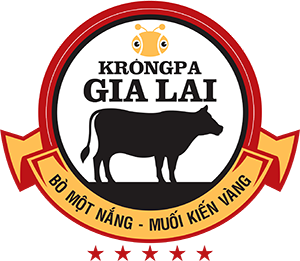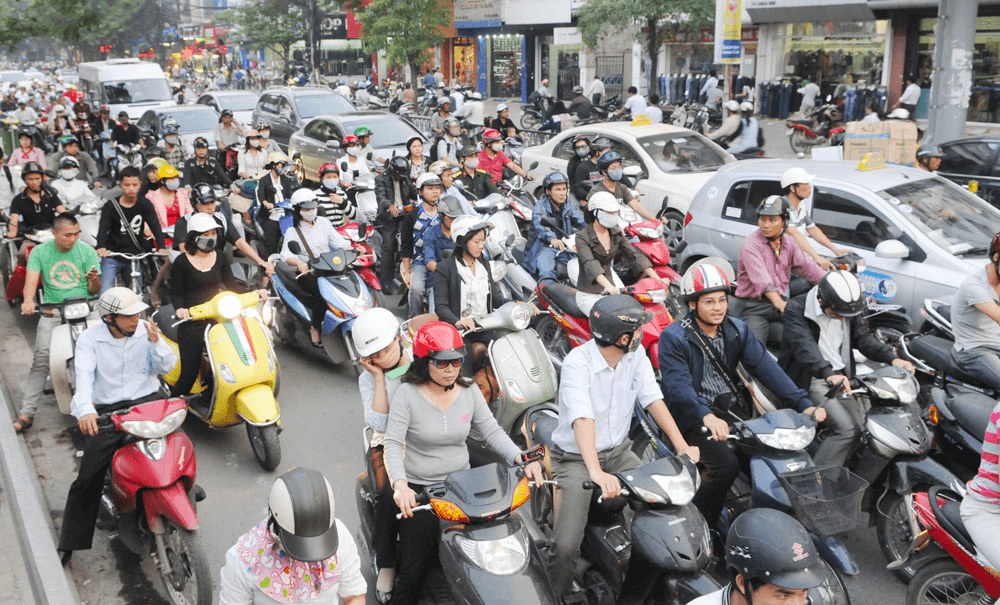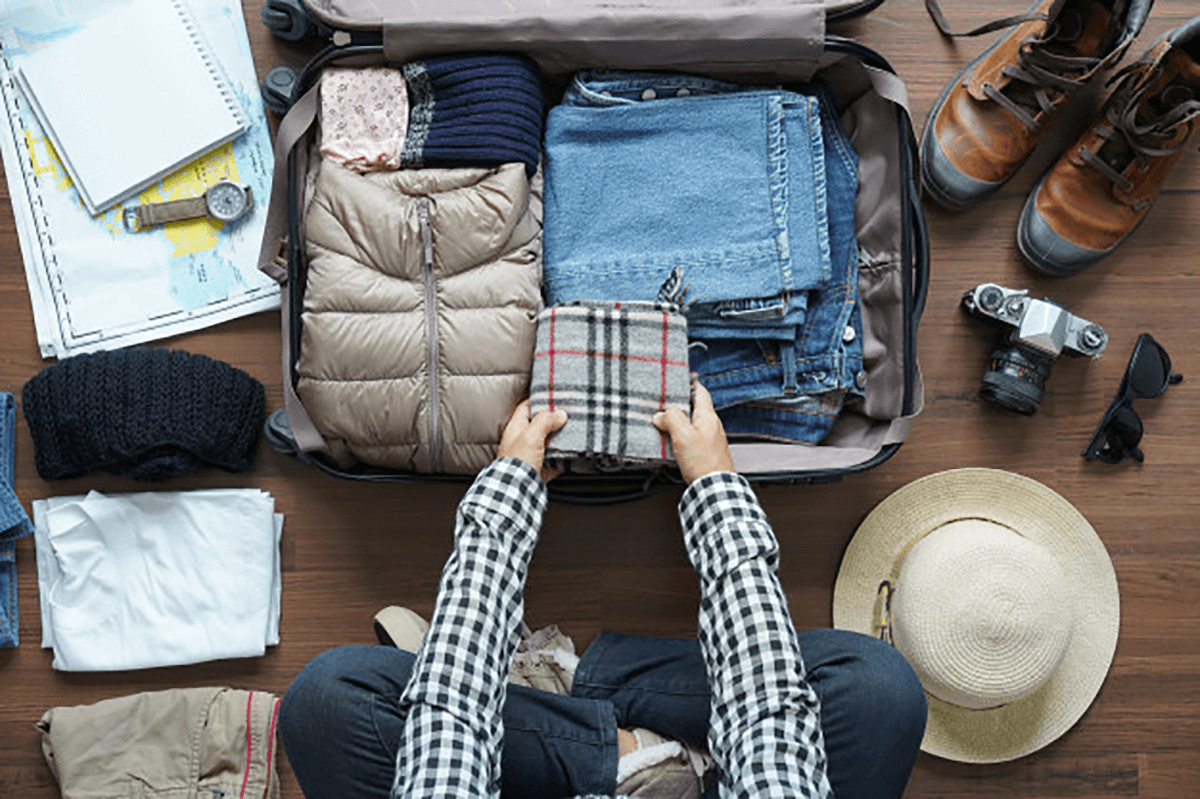Bí quyết
Vietnam travel tips
Given its historic past, Vietnam is a country that offers a unique perspective for travelers. Blessed with an insanely diverse landscape, you could be sliding down sand dunes in the morning, taking a stroll by the beach by noon and walking around a UNESCO heritage town by afternoon.
No better way to start your holiday to Vietnam knowing that you’ve got everything figured out. Flight booked, hotel booked, enthusiasm on point. But what to bring/prepare? This is our Vietnam checklist, a list of important travel essentials you’re definitely going to need!
Following these top Vietnam travel tips will help you avoid the major pitfalls, and ensure you come away from your first visit to Vietnam with happy memories, as well as your souvenir conical hat 😉
When you are limited in time, or you don’t feel like figuring out everything yourself, we suggest you book a private tour in Vietnam. And that’s where we come in! We at ForeverVacation offer some of the best tours in Vietnam, including our best selling Hanoi Instagram tour, where our guides will take you to the most famous spots in Hanoi, all in one day! No muss, no fuss!

Sort out the right visa before traveling
Preparation is key when it comes to traveling, especially when you are flying to a different continent! When planning a trip to Vietnam, one of the first questions you need to ask yourself is ‘do I need a visa to enter Vietnam? It goes without saying that you need an international passport. Make sure it’s valid longer than six months though or they won’t let you in (true story).
But when do you need a visa? This will entirely depend on your nationality and how long you are planning to stay in Vietnam!
There are certain countries (only a few though) that made agreements with the government of Vietnam so their citizens can benefit from the visa exemption when entering the country as tourists. These tourists are allowed to stay in Vietnam for a limited amount of time, without the need to apply for a tourist visa from their local Vietnamese Embassy.
However, most people will need to get a tourist visa before traveling to Vietnam. Depending on how long you would like to stay, you will need to apply for and E-Visa or a Visa On Arrival! Make sure to check our detailed Vietnam visa blog post to make sure you get the right one!
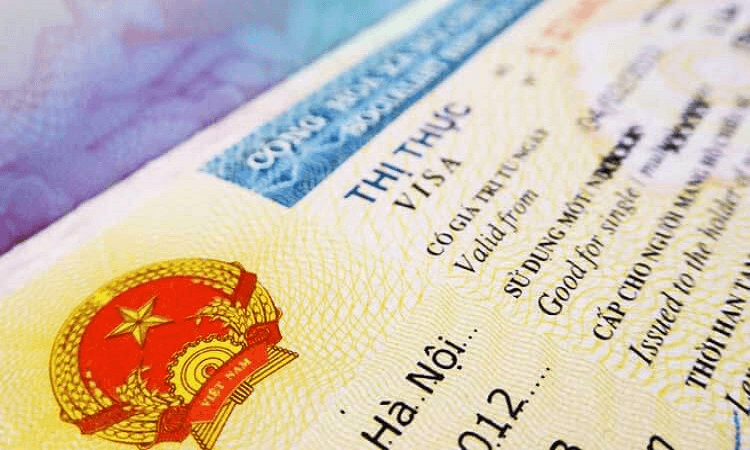
Make sure to travel at the right time/season
Knowing the best time to visit Vietnam is essential if you want to make sure you’re traveling at the right time; ideally avoiding the sweltering heat and dodging the monsoon rains. You also need to understand there are big differences when it comes to seasons in different parts of Vietnam.
The weather in Vietnam changes from North to South and region to region. Influenced by the tropical monsoon climate, north Vietnam has 4 distinct seasons: spring, summer, fall and winter. The south of Vietnam has 2 seasons: dry season and rainy season. Each season has its own features and characteristics, which bring you different experiences about places and landscapes.
Lucky for you, we’ve dedicated a whole blogpost to Vietnam’s weather and when the best time is to visit! You can read all about it here!
Don’t underestimate the country’s size
Vietnam is a very long, thin country. From the city of Hanoi in the north to Ho Chi Minh City in the south, the distance is over 1,000 miles and it would take about 30 hours by car. If you are limited on time, you should definitely plan on flying if you want to hit all of the highlights in the south, central, and northern regions.
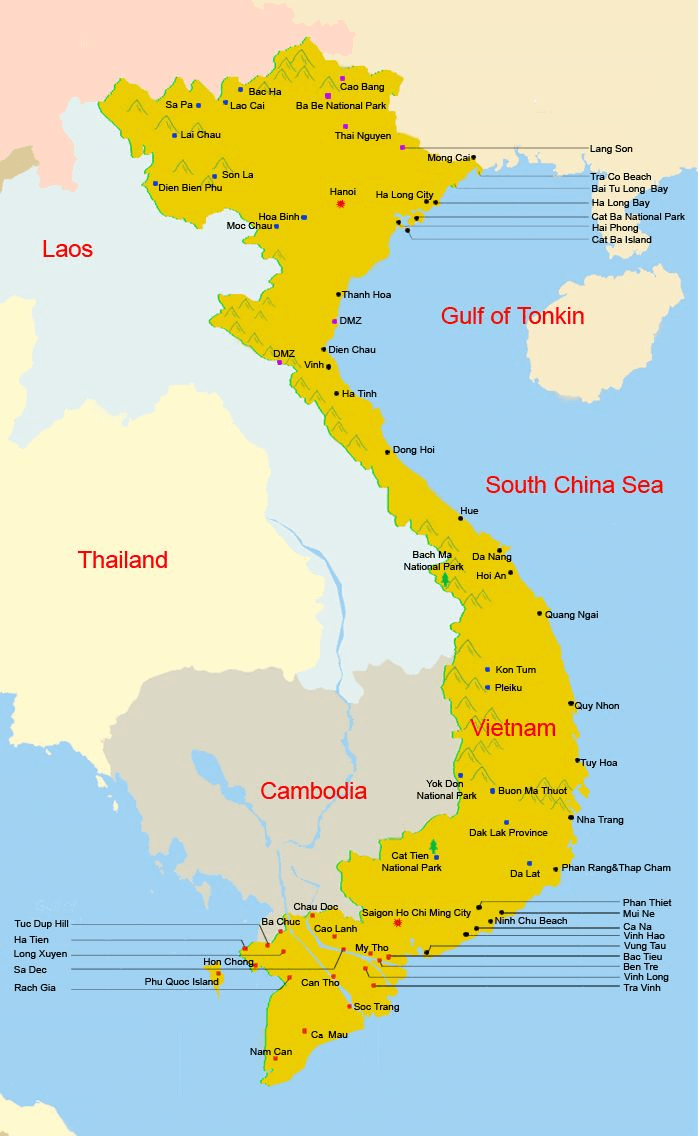
Learn how to cross the streets in the big cities
First things first. When you find yourself in Hanoi or Ho Chi Minh and you are exploring the city by foot, one of the most difficult challenges you’ll come across will be….crossing the street! Traffic is pretty crazy in Vietnam and crosswalks don’t really matter here.
To locals, it’s basically just white paint on the road with no meaning. It will be a bit intimidating at first, but when you take in the following rules, you’ll be able to tackle the streets like a pro!
- Cross with locals: especially if it’s your first time crossing a street in Vietnam, try to spot locals, follow them and copy their pace, timing and attitude.
- When in the middle of the road, KEEP GOING AND DON’T STOP. Believe us, they will dodge you, even if it’s by just a hair.
- Meet the eyes of the people driving straight at you. This will help them avoid you.
- Keep in mind that sidewalks are not only used by pedestrians, they are also being used by scooters that want to avoid traffic jams
- Look confident and don’t hesitate!

Use mosquito repellent
Mosquito bites can be nasty, you know that already. But in Vietnam these annoying blood suckers can also carry Malaria and Dengue Fever. Unless you want to get severe headaches, muscle pain, high fever and nausea, put some insect repellent in your suitcase. Extra plus, it will keep other bugs away too!
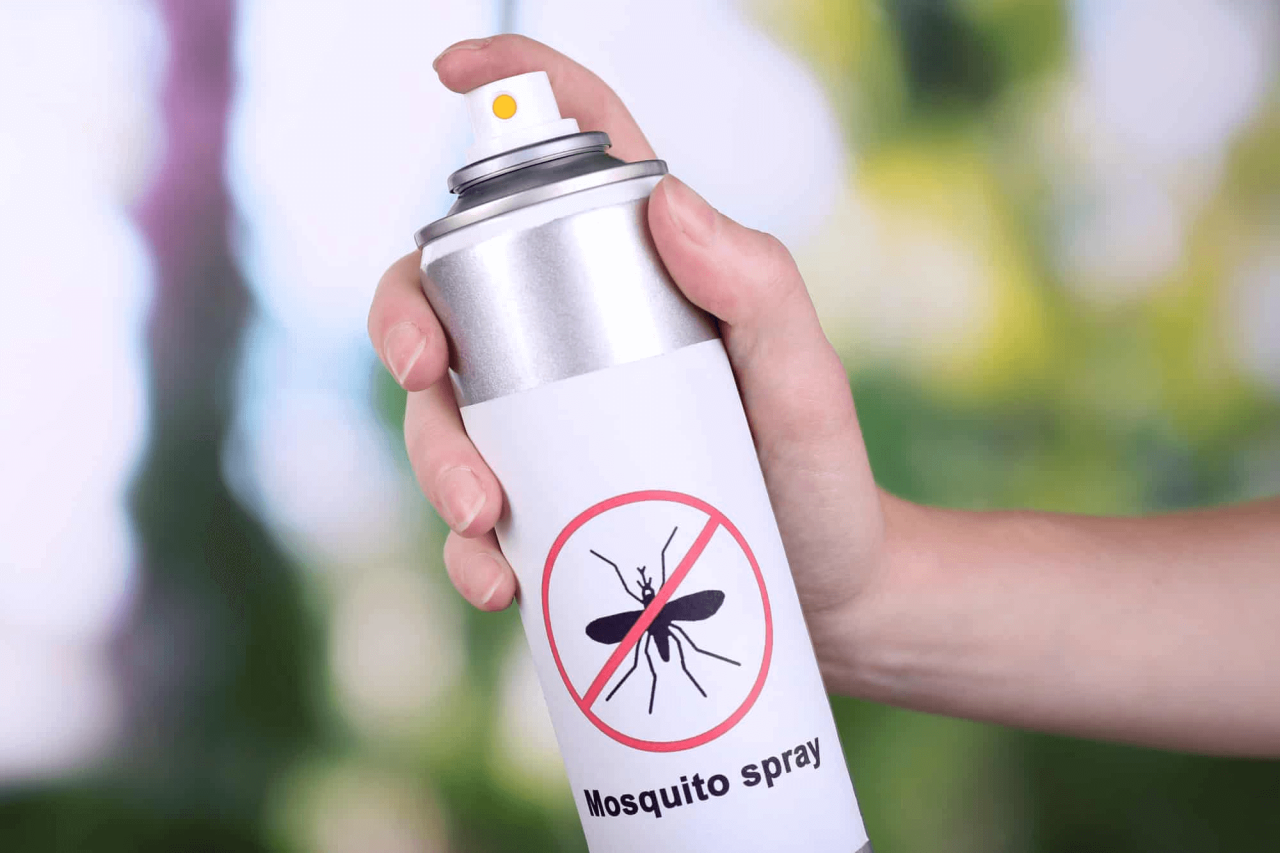
Which clothes to pack for traveling to Vietnam
Choosing the right time to travel to Vietnam can have a big impact on your holiday, both for personal comfort and packing purposes. The south generally receives more rain and enjoys a tropical climate, however, Hanoi and points farther north have colder winters than many travelers expect. If you are looking to cover both north and south, you’ll need to pack both warm and light clothes!
Vietnam is a semi-tropical country but winters in the north can be chilly (especially in highland areas such as Sapa). If you’re heading to Hanoi and the surrounding region between December and March, make sure you pack a few hoodies or warm sweaters for the evenings.
Central Vietnam can be wet in November and December: an anorak or raincoat is a must. South Vietnam is warm at all times of year, so opt for light, breathable clothes and a sunhat/sunglasses here.
Be wary of scams
Vietnam is known for its tourist traps and scams, so we’ve a listed some of the most common ones below so you can recognize and avoid them:
- Taxi scams – Taxi scams are common in Vietnam, particularly in tourist hotspots. Some taxi drivers will take advantage of tourists by driving them around in circles to increase the fare or by charging exorbitant prices. To avoid taxi scams, make sure you use reputable taxi companies or ride-hailing apps such as Grab. Always ask for the fare before getting in the taxi and make sure the meter is on.
- Fake tours and tickets – Be wary of cheap tours or tickets that seem too good to be true. Some tour operators may offer incredibly low prices, only to take you to fake attractions or force you to pay extra fees once you’re on the tour. To avoid this, research the company beforehand and read reviews from other travelers.
- Money exchange scams – Some currency exchange booths may advertise favorable exchange rates but actually give you less money than you should receive. To avoid this, always check the exchange rate beforehand and only exchange money at reputable exchange booths or banks.
- Motorbike rental scams – Motorbike rental scams are common in Vietnam, particularly in popular tourist destinations. Some rental companies may ask for an inflated deposit and then claim damages that were already on the bike or even steal the bike altogether. To avoid this, only rent from reputable companies and take photos of the bike before and after renting it.
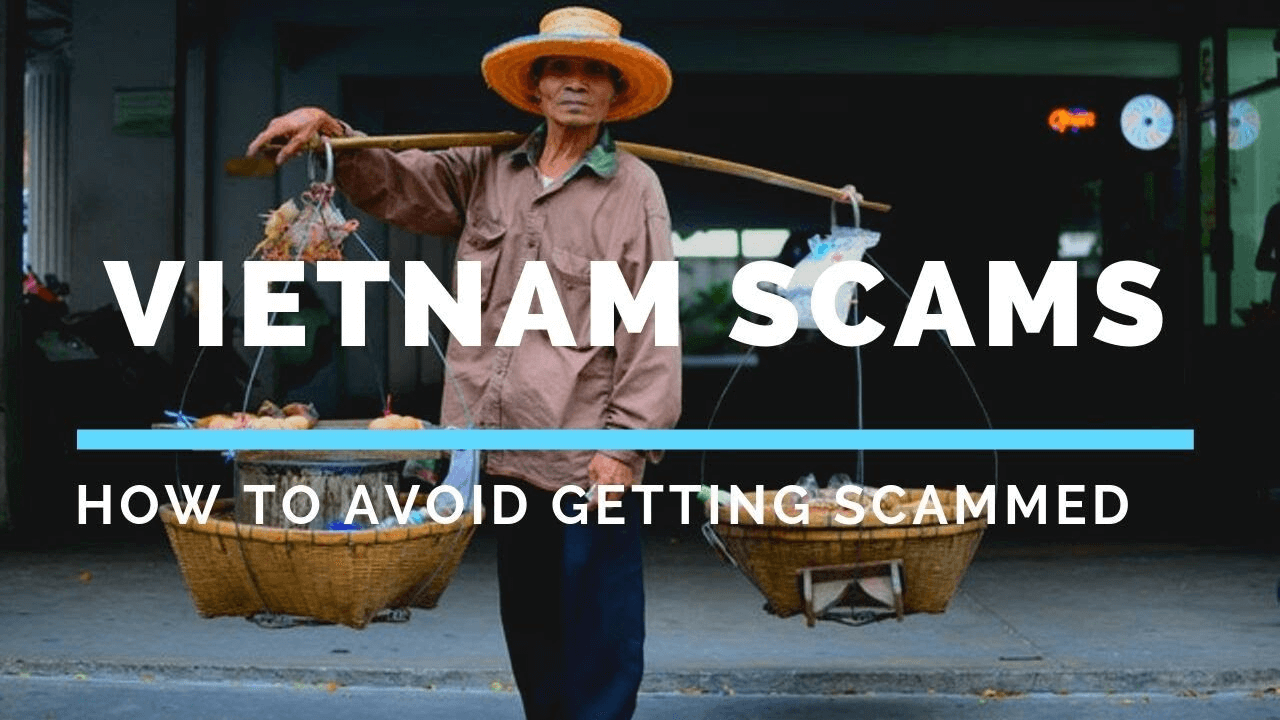
Know your transportation options
There are numerous means of transportation in Vietnam and your choice will depend entirely on your budget, the amount of time you have and the level of comfort you prefer!
Travel by plane: the fastest way
Most first time Vietnam visitors want to visit both Hanoi (in the North) and work their way down to Ho Chi Minh City (in the south), or do the opposite. If you only have a limited amount of time (or you prefer to travel comfortably), your best shot is to take a flight between these two cities.
Travel by train
Vietnam has a reliable and well equipped rail system and the trains in Vietnam are better than most in Southeast Asia. The cost for getting around by train is a little higher than by bus but the extra comfort you get on a train makes it worth the extra cost. And more importantly, the trains are said to be safer than buses.
Travel by bus: The cheapest way
Traveling by bus is one of the cheapest ways to get around Vietnam, with buses connecting most major towns and cities. Keep in mind that the quality of the services and the busses can differ dramatically depending on which tour operator you chose so we recommend opting for the slightly more expensive ones, if you have to budget for it.This especially if you take overnight buses and when traveling long distances (for example, it takes around 32 hours from Ho Chi Minh to Hanoi).
Travel by motorbike: the most adventurous way
If there is one country in Southeast Asia associated with motorcycle travel, it is Vietnam. Each year, thousands of backpackers set off on an adventure: live the unique experience of traveling Vietnam on a motorcycle. It’s really a unique way of traveling around the country but we do however only recommend it to experienced motorbike drivers.
Getting around in the city
The most efficient way to get around in larger cities is by using the apps ‘Grab’ or ‘Gojek’. Like Uber, Grab and Gojek are app-based taxi companies that will allow you to ‘order’ scooter and car rides just like Uber. It’s a super easy and cheap option for those who are on a budget!
Journeys are reserved via your mobile phone (maybe get a local sim card for this one) and the journey has a fixed fare meaning that you’ll avoid arguments with the drivers. The application allows payment by card or cash!
Travel by boat
If you’d like to see Halong Bay, you’ re only option is to take a boat. If you have never heard of Halong Bay, well, it’s one of Vietnam’s most stunning attractions – there is no way to describe Halong Bay other than as purely breathtaking. As a UNESCO World Heritage Site and natural wonder of the world, the bay features thousands of limestone islands and cliffs emerging from the turquoise sea.

The benefits of organized tours
Traveling with a private driver is a perfect solution for people that enjoy an easy way of travel or for people traveling in group or with a family. Although this might be a slightly more expensive option, it’s also the safest and most comfortable way.
When driving with a local driver, you are sure they know all the ins and outs, they know how to tackle the Vietnamese traffic and you can personalize your trip and make stops at all the attractions you’d like to visit along the way!
As you know (or don’t know), we at ForeverVacation offer private, all-inclusive tours in Vietnam such as Ho Chi Minh, Hanoi, Danang and Quy Nhon, where one of our local guides will take you around i the comfort of your own private, air-conditioned car! How good does that sound?
Pros:
- Everything is organized for you so you’ll be stress free
- It’s a comfortable way of traveling
- You can personalize your trip
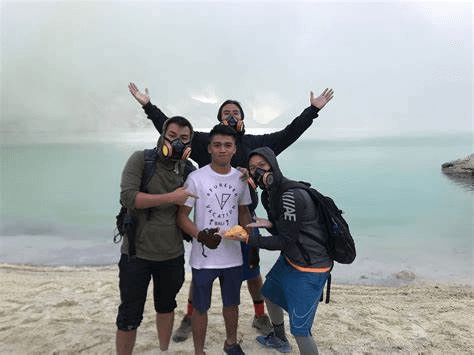
Prepare a medical kit at home
Bring your own medical emergency kit from home when you travel. I know this is a no-brainer, but still worth mentioning. You will feel much safer and at ease when you have your own medication and pills from back home.
Also, don’t forget to bring your medical prescriptions from back home, or even better, buy your prescription pills in your own country before leaving for Vietnam.
Also, never drink tap water, only eat fresh cooked food and wash your hands regularly. Believe us, you don’t want to get sick. If you do though, you’ll be thanking yourself you brought some diarrhea pills. If you’re planning on traveling by boat, you may want to consider bringing some motion sickness pills as well.

How To Avoid Them For An Amazing Trip
Traveling in Vietnam can be challenging to say the least, especially when trying to avoid tourist traps and scams hidden around every corner. Asia Highlights is here to show you what to look for to avoid these traps.
We can also help design the best possible tailor-made private travel experience for your budget and needs.
Our prime goal is to keep you safe. All of our guides have been trained with your needs in mind. They seek to give you the best experience possible by showing you all of the breathtaking views while keeping you away from tourist traps and scams.
Always Set a Price
Before you do anything,find out the asking price or set a price yourself. You can always ask your tour guides or hotel/hostel staff what the prices should be close to.
However, this can often be confusing because the Vietnamese currency (the Dong) has a very high note denomination. Currently,1 USD is equal to more than 22,000 Dong! Check the exchange rate daily because it is constantly changing.
Eating
One of the most popular and easy ways to scamyouis with a menu that has no prices listed. These restaurants are hoping you won’t notice so they can overcharge you.
Don’t fall into this trap. Always check for a price, and if you can’t find one move on to another restaurant or try your luck with bargaining for a price.
Along with hidden prices, restaurants will often place tissues, bottles of water, and small snacks on or near the table. These things are usually not complimentary but are put there in the hope that you will use them so they can charge you for them – sometimes at triple the normal asking price.
So try to remember to ask about prices before using anything.
Street food is a fun and cheap alternative to a more Western-style restaurant, but many of these places won’t have prices listed. So, the best way to make sure you’re paying the best price is to see how much locals pay for the same thing.
This way, the vendor can’t try to charge you three times as much for the same meal, and if locals are eating there you know it has to be good.
Getting Around
Taxis are one of the easiest ways to get around Vietnam, and taxi drivers know that once you’re inside their cabs you’re obligated to pay. To make sure that they don’t charge you more than they should, try to use official taxi companies, such as Mai Linh, Vinasun, or Taxi Group.
Often, illegal taxi drivers will have modified meters that run faster in order to charge you unbelievably expensive fares, or they will take longer routes to increase the cost.
You can always ask your hotel or hostel to call a taxi for you. You can also ask them for estimates on how much it should cost to travel from place to place.
Anytime you want to take a boat trip, we recommend booking a return ticket instead of a one-way ticket. Often, when you try to buy the return ticket separately it will more challenging and cost you more money, which you could be spending on fun excursions.
Especially when walking around, but even on the back of motorcycles and tuktuks, your bags are easy targets for professional thieves in Southeast Asia. Try not to show off your expensive belongings.
When traveling, always keep your personal belongings very close. It may even be best to keep a hand on top of your belongings to help keep them safe. Hotels, Hostels, and Tours
Hotels, Hostels, and Tours
Finding the right place to sleep and the best tour to take can be overwhelming, especially on a budget. We recommend only putting your trust in well-established and reputable tour groups, hotels, and hostels.
Any time you take a chance on one of these you risk not having a well-organized tour, safe food, or even a clean bed to sleep in.
Vendors and Children
Tourism has become a large industry in Vietnam, and the locals have learned what foreigners like and how to make money off them. One common scam is to get you to take a picture with them and then to ask for money.
By being aware of this scam you will be able to avoid these situations.
However, depending on how much you want some pictures it might be worth it to pay money to the vendor or child for the picture.
Locals at some very picturesque locations will try to help you take a picture and charge you for it. This can be seen negatively or as a great chance to meet the locals and create a lasting memory.
Beggars
Like many other places around the world, some beggars are used by gangs and corrupt groups of people to make a profit by manipulating the sympathy of innocent people. It is hard to know who really needs help and who is just a part of the corrupt begging system.
So if you feel uncomfortable giving money because you don’t know how they will use it then we suggest you don’t givethem any.
Instead, try to carry some food on you so you can give food instead of money. This way, if they take the food then you know that you have really helped them and have avoided giving them money for drugs or other things.
Stay Positive
Remember that if you do get scammed,you are probably not losing as much money as it feels like. We recommend downloading a simple converter app to help you know how much money you are actually spending and take one of our trusted guides with you to get the best deals.
Explore Asia with Asia Highlights
At Asia Highlights we offer tailor-made tours through Asia, where you can enjoy all highlights as well as amazing cultural experiences. To get started, send us an email.
10 Common Tourist Scams in Vietnam (and how to avoid them)
I love Vietnam. It’s one of my favourite countries in the world. There’s a wide variety of things to do, the food is delicious and it’s incredibly cheap to backpack around the country.
But… amongst the many kind Vietnamese people are a whole load of scammers and rip off merchants eager to pounce on unsuspecting tourists. Across my personal travel experiences (predominantly in Asia), I’d put Vietnam in the top three, alongside Sri Lanka and Morocco, of the worst countries for this type of behaviour.
In this post I’m going to detail some of the common scams/rip offs and how to avoid them. Apologies in advance for the Vietnamese currency jokes…
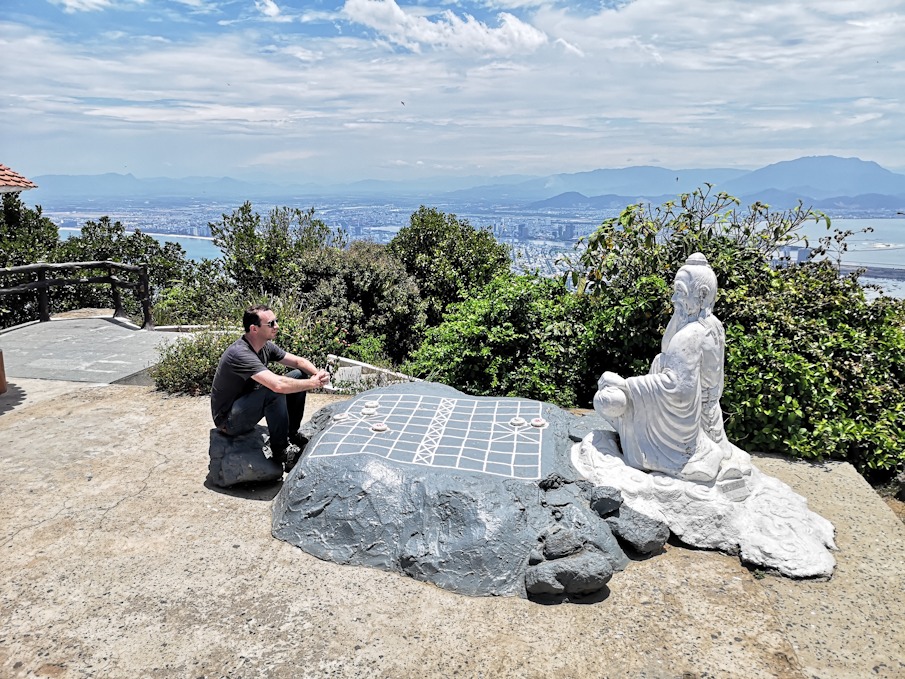
1. Taxi drivers charging ridiculous fees
The most common of them all and a regular frustration for travellers in many countries. This is especially prevalent at transport hubs and tourist attractions, I’ve been quoted up to ten times the price I can get through Grab, an app like Uber, while in Vietnam. Usually the multiple is far less, but I expect every quote from a taxi driver to be at least double what it should cost.
Where it happens
Basically anywhere that you try and get a taxi. Expect the largest mark ups to be at the aforementioned transport hubs and tourist attractions. Where possible, walking just a minute away from these areas and hailing a taxi should get you a lower quote, but it will still usually be higher than it should be.
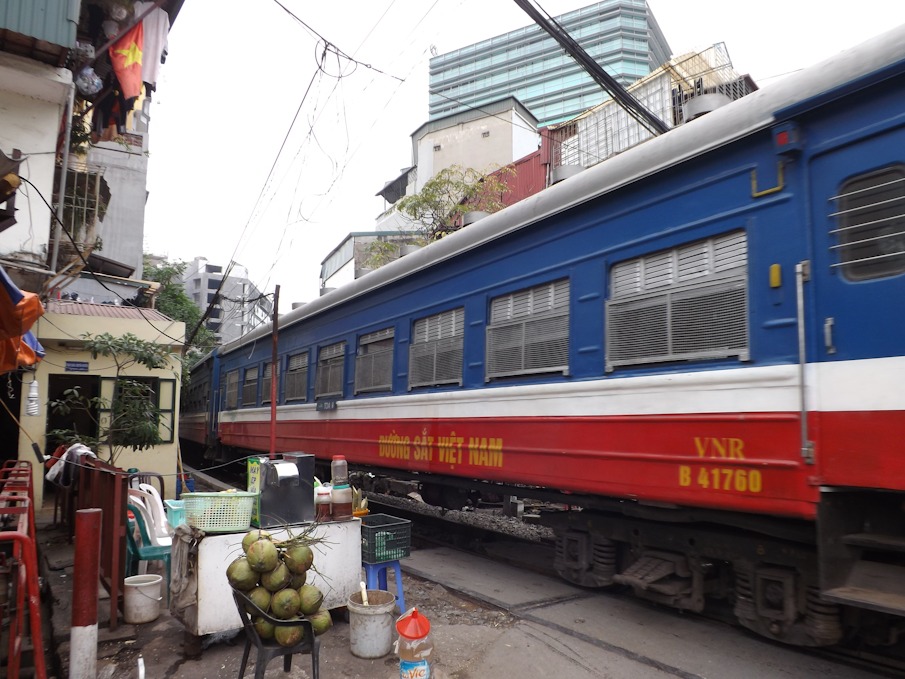
Location: Hanoi Train Street (not an actual train stop)
How to avoid
Option 1 – Use Grab. It isn’t available everywhere in Vietnam but, where it is, I’d suggest using this to avoid hassle.
Note that if a taxi driver shows you the Grab price on their phone, you shouldn’t believe it – they have probably selected a (far more expensive) VIP option. I have fond memories of this at Da Nang Airport – some drivers quoted 500,000 VND (£16.35 GBP) for a short ride to the city centre and, using their phone, showed me a similar price on Grab when I declined. When I checked the price on Grab myself, it was about 50,000 VND. I showed this to the next driver who approached me and, with me STARING AT THE SCREEN, he scrolled through the different Grab options on my phone to some VIP service costing about 500,000 VND, then acted like this was proof that his quote was fair and not ten times the normal price – how stupid does this guy think people can be!?
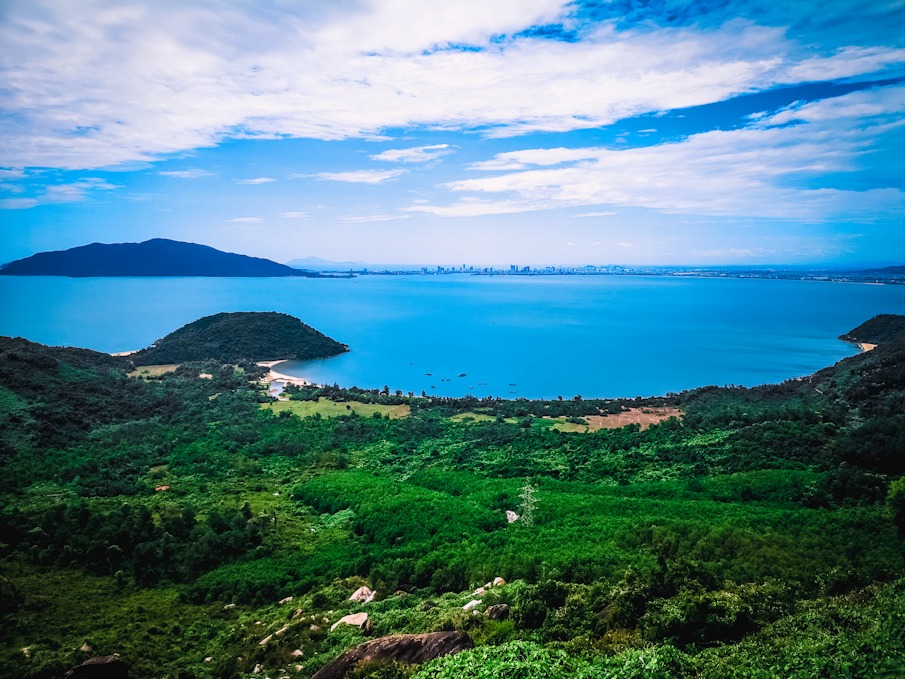
Option 2 – Ask for the driver to put the meter on before agreeing to the ride. This should get you a fair price but beware that fake meters, which rise faster than they should do, aren’t unheard of. The other risk here is that the driver can take a long ‘scenic’ route to your destination – having the route on your phone can easily put a stop to this.
Option 3 – If they insist on a fixed price, be prepared to haggle hard and willing to walk away. It’s best to have a rough idea of prices in advance, otherwise you won’t know what sort of fixed price to aim for.
I’d only use option 2 or 3 if Grab isn’t available. The app saves so much aggravation and means your money is going to the taxi drivers (minus Grab’s fee) who are willing to work, not the arseholes that hang around tourist spots all day waiting for one big fare.
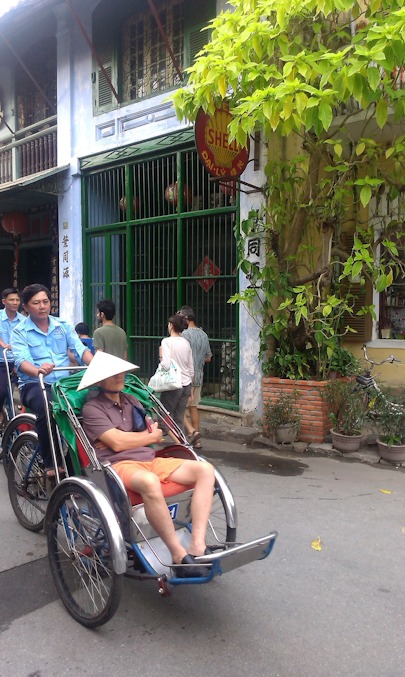
Even with Grab, I had a problem on one occasion. Upon arrival in Sapa, the driver sent me a message asking for 50,000 VND to go from the bus stop to my hostel. The actual price on Grab was about 30,000 VND so I cancelled the booking. This only happened to me once in Vietnam (worldwide, it’s happened to me a couple more times with Uber in Jordan) so I think it’s very rare, but don’t be shocked if it happens.
2. Motorbike taxis
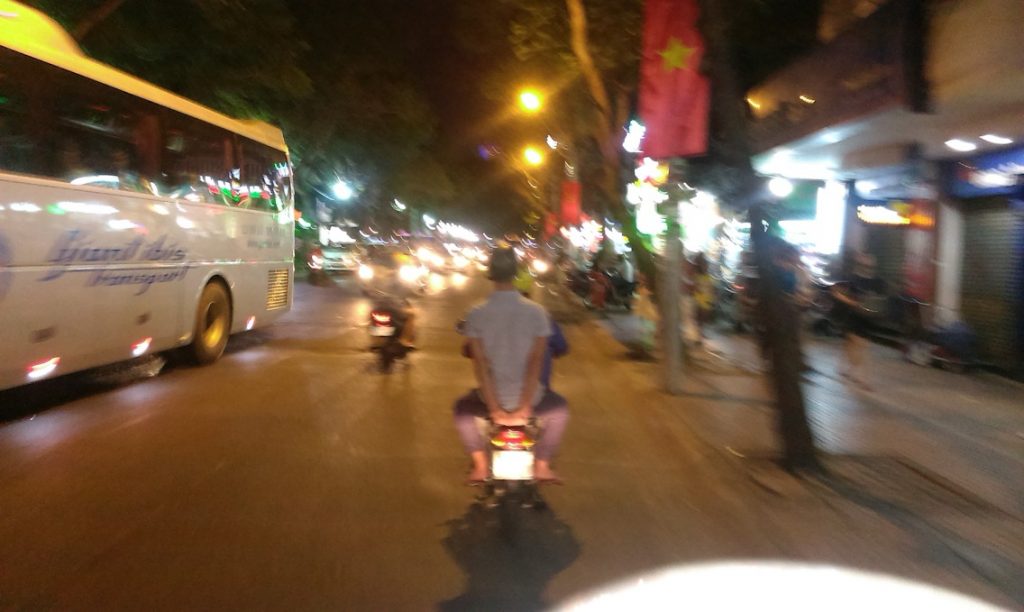
Continuing with the taxi theme, there are motorbike taxis who will offer to take you somewhere. This can be good fun and going should be fine, but you might find the price suddenly rising when you arrive at your destination.
Where it happens
This is one of two cons on this list that hasn’t been tried on me but it could occur anywhere. I suspect it’s more likely to happen in the big cities like Hanoi and Ho Chi Minh City.
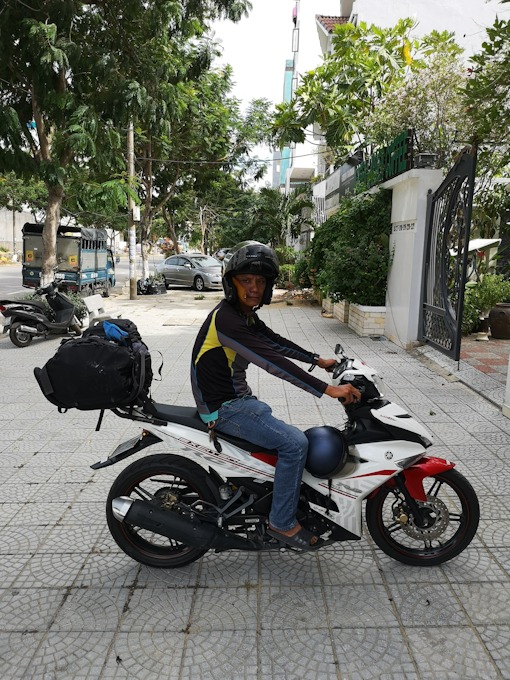
How to avoid
Haggle and agree a fixed price upfront. Check what it costs on Grab to help with your negotiations (don’t give them the chance to grab your phone and drive off). Stick to the agreed price if they ask for more at the end. Any claims that the price has gone up because there was a lot of traffic are nonsense – there is always a lot of traffic in Vietnam!
3. Getting your Dong mixed up
No need to be alarmed – the currency in Vietnam is called the Vietnamese Dong (VND). Banknotes range from 100 VND to 500,000 VND and, aside from the all-important number, the 20,000 VND and 500,000 VND notes look very similar. When handing a 500,000 VND note over, there’s a chance that the recipient might quickly switch it for a 20,000 VND note and pretend you gave the wrong one.
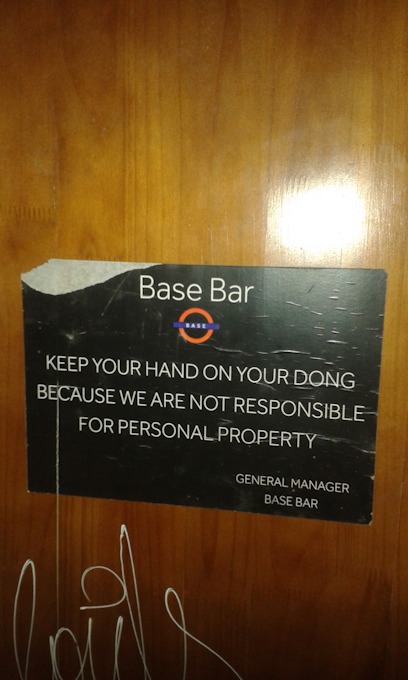
Where it happens
This is the other scam on this list that has never been tried on me, but anywhere where you’re handing over money is a possibility.
How to avoid
Pay attention when handing your money over, the recipient can’t switch notes if you’re watching.
On the subject of currency, break some of your big notes into smaller denominations as soon as you can. Small vendors might say they don’t have change (sometimes true, sometimes not) which can leave you a choice between paying extra or not buying what you wanted. I’ve paid slightly extra for water outside one of Hue’s royal tombs as the girl (who had already tried being flirtatious and using the coin collecting trick – more on these later) claimed she didn’t have any change.
4. Shoe shiners/repairers
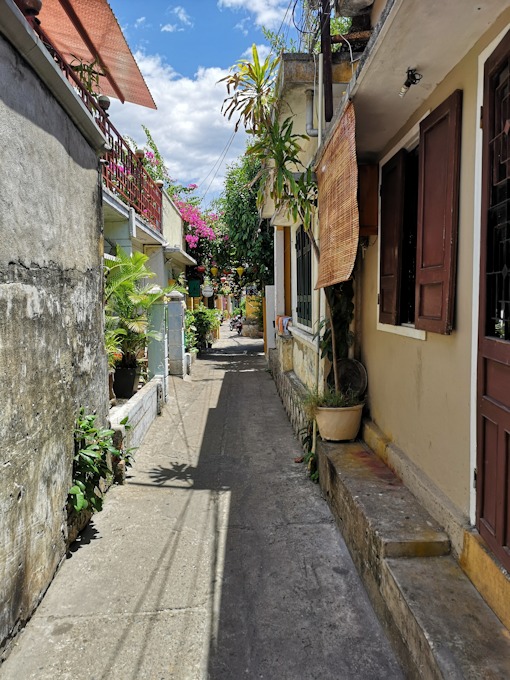
Location: Hoi An
Picture the scene, you’re walking down the street or sitting outside and a guy suddenly exclaims “look!” at you while pointing at your shoes. He offers to shine/fix them and quotes a price. After the work is done, the price changes. The easiest trick here is for the price to double (the quote was per shoe after all) but some chancers may aim higher.
Where it happens
I don’t think it’s exclusive to Hanoi, but it’s been tried on me multiple times here and not at all in other parts of Vietnam.
How to avoid
Just say no – they can’t do any work on the shoes you’re wearing unless you let them. Don’t be like the guy in Goodfellas who asks to have his shoes shined. Note that, if your shoes actually are in poor condition, you’ll still probably have to say no several times before being left alone. Not that I have any experience of being out and about in such shoddy footwear…
5. The coin collector
A local approaches you in the street under the pretence that they want to have a friendly conversation with a foreigner. This interest in you is highly unlikely to ever be genuine if you are in a location popular with visitors. At some point in the conversation, they ask where you are from and proceed to either 1) ask for a coin (or note, the greedy buggers) from your home country for their ‘collection’ or 2) ask if you can give them some VND in exchange for money they have in your home currency. Guess what? If they ask the latter, they got the foreign currency they want to change for VND from a previous unsuspecting tourist.
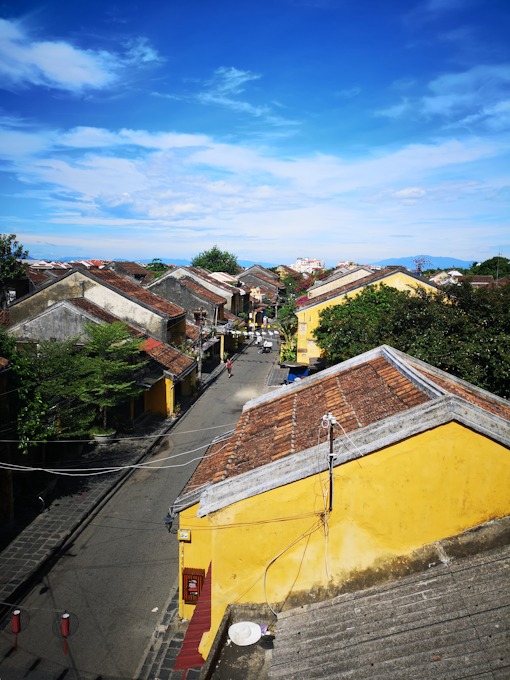
One guy, who looked like he was in his 70s, flat out asked me for VND after I declined his request to exchange currency. He needed the money to help provide for his baby daughter apparently. I suppose I should have congratulated him.
Another version of this trick is to say they are a teacher and want the foreign money to show to their school students or some other variation that involves showing children, since this can elicit sympathy. To be fair, showing foreign currency to kids is better than showing them dong.
Where it happens
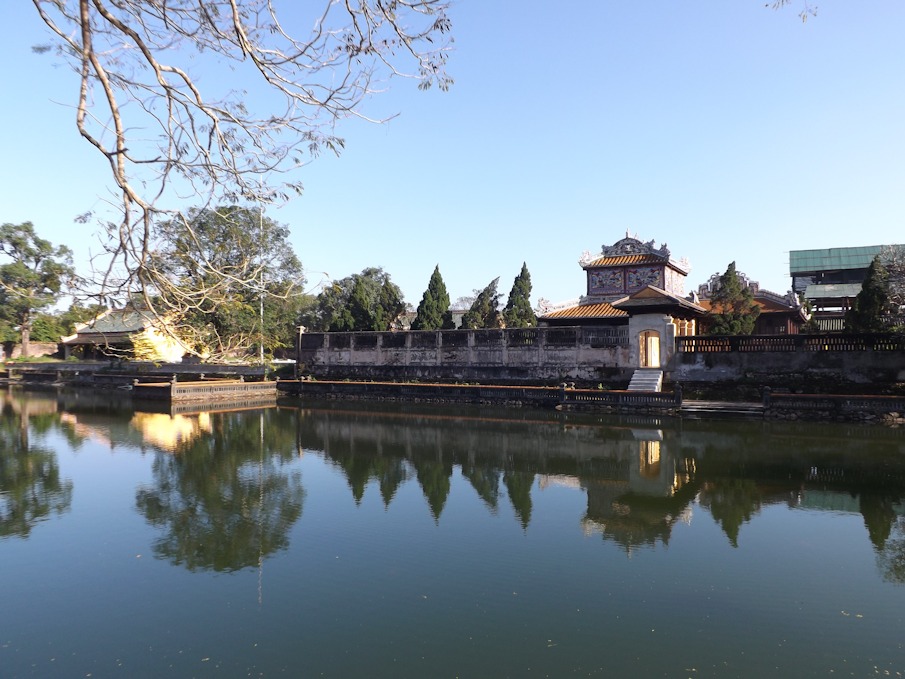
Could be anywhere but collecting coins seems to be a very popular hobby in Hue. I have no idea why it happens so much here but it does. I have really fond memories of a morning in Hue where I got stopped multiple times by ‘coin collectors’ on a 15 minute walk from my hostel to a coworking space. When I arrived at my destination, I discovered it had closed down, went on another walk to a different coworking space and met more lovely coin collectors on the way to this one. Really, I should learn to just keep walking and not stop for a chat, but my Britishness usually gets the better of me.
How to avoid
The polite way – go through the motions of the conversation but decline to give/exchange any money. Either say you don’t have any money in your home currency to give them or, if they are asking for VND in exchange, say you don’t need any of your home currency as you’re not going to be there for a long time.
The rude way – just ignore them and keep walking. After getting constantly stopped and bothered by strangers for 20 minutes, hearing the latest tosser shout angrily at you as you walk away is quite satisfying.
6. Being overcharged for food/drink
You sit down, enjoy a meal and receive a bill with the items you consumed, but at higher prices than those on the menu. This is an easy one to fall for if you don’t remember the prices or if they only inflate the bill slightly.
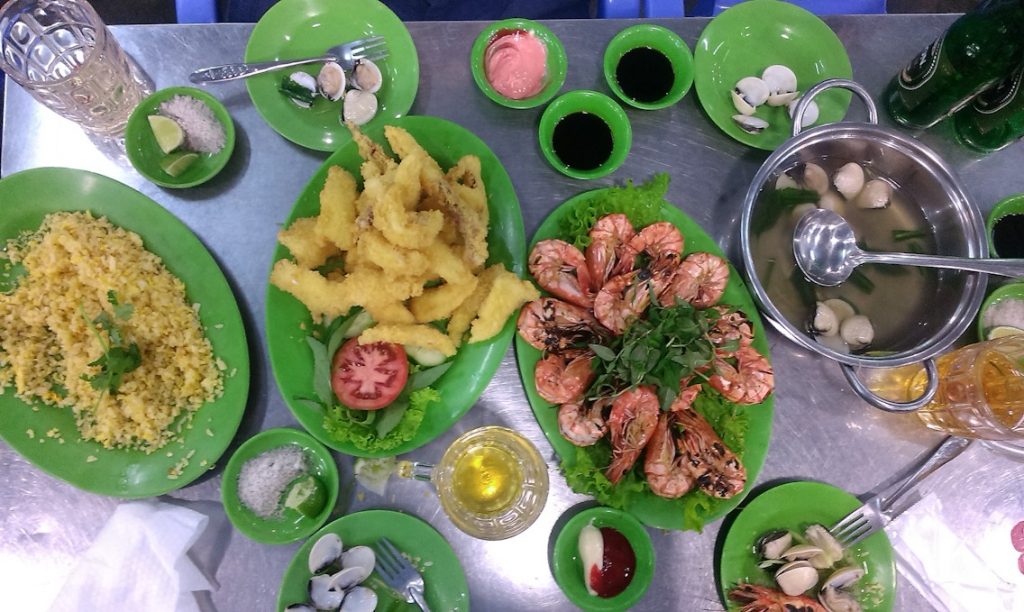
Note: There is a chance, anywhere in the world, that they have genuinely made a mistake with the bill so don’t immediately start making accusations. The opposite happened to me once in Bali where an old lady undercharged me – I could see the meal and drink on the bill added up to more than the total she had written down, but had to demonstrate this on her calculator before she accepted the correct amount.
Where it happens
Again, this could be anywhere. In Vietnam, it has been tried on me once in a small café in Hanoi… with a successful outcome. I must have been having a bad day as I inexplicably went along with it and paid despite knowing the bill was too high. It was hardly any money, but I was really annoyed with myself for not saying anything. Unfortunately, I don’t remember the name of the place so my chance to exact petty revenge on them in this blog or on TripAdvisor has been lost.
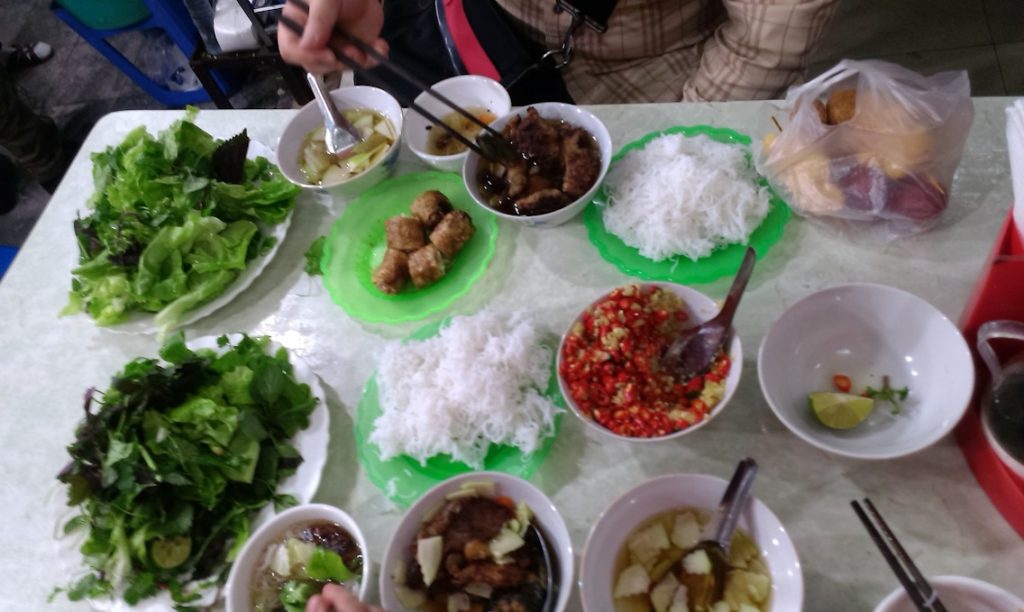
How to avoid
Tell them the prices are higher than on the menu (state the correct prices for all items that you remember the price for) and insist on them giving you the correct bill. Ask for the menu back if necessary to see the prices (bear in mind they might have an overpriced menu exactly for this situation – if this happens, call them out on it). This can get heated but stand your ground – I had a similar situation in Sri Lanka and they eventually charged the right amount after feigning innocence for a while. As an ultimatum, threatening to walk out without paying anything unless they give you the right bill may work – I expect I’ll be testing this theory sometime!
As an extra, warn any other customers about their nefarious practices on your way out. The other customers deserve to know and it’s an easy way to stick it to the owners. Win win.
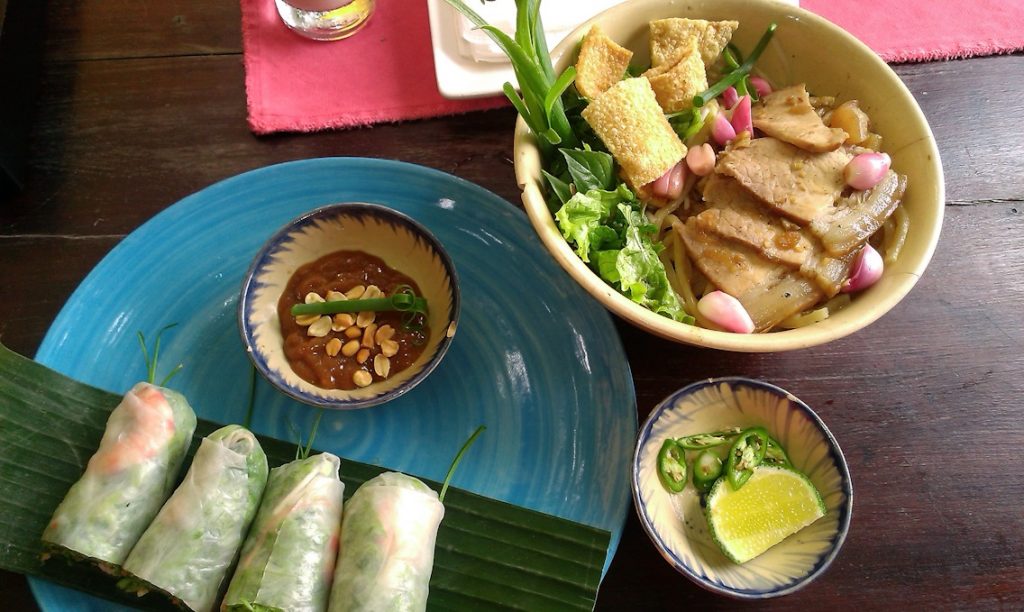
7. The photo opportunity
At some point while exploring, you may be asked by a local if you want to take a photo either of them or yourself carrying a traditional Vietnamese bamboo shoulder pole. They might say it’s free when encouraging you to take the photo, but they’ll soon change their minds afterwards!
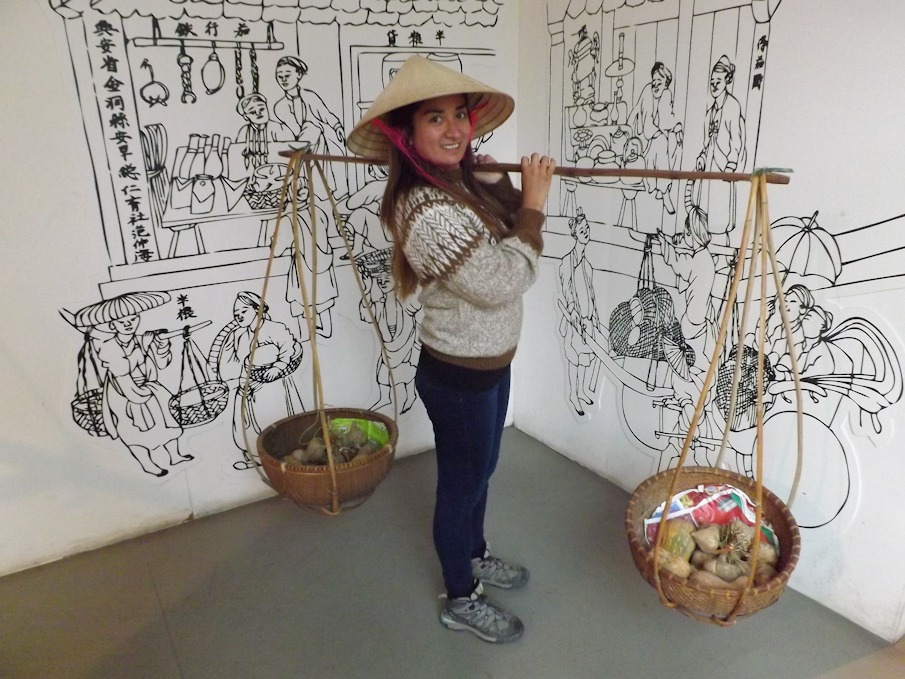
Where it happens
Mostly around the old town of Hoi An, though I’ve seen it in Hanoi as well.
How to avoid
Just saying no should be enough. There’s a chance they try and put the shoulder pole on you – don’t let them.
8. The overly friendly girl(s)
Guys, use your brain. If an unknown woman approaches you on the street and flirtatiously grabs your arm/other body parts, it’s very unlikely to mean that she has a high opinion of you. She might be trying to sell you something, or she might be trying to pick your pockets. The dong she wants isn’t in your pants.

Location: Fanny’s Ice Cream, Ho Chi Minh City
Things like this don’t only happen on the street. When I was paying a bill in a local restaurant, a waitress suddenly stared at me like she’d been hypnotised and declared “your eyes are so beautiful”. As much as I’d like to think she was hypnotised by my facial features, I’m pretty sure the waitress was thinking about dong, I mean a tip (ok – no more of these).
Where it happens
This is another one that can happen pretty much anywhere in the country.
How to avoid
If you get caught in this situation, keep your hands on your pockets, decline whatever is suggested and walk away.
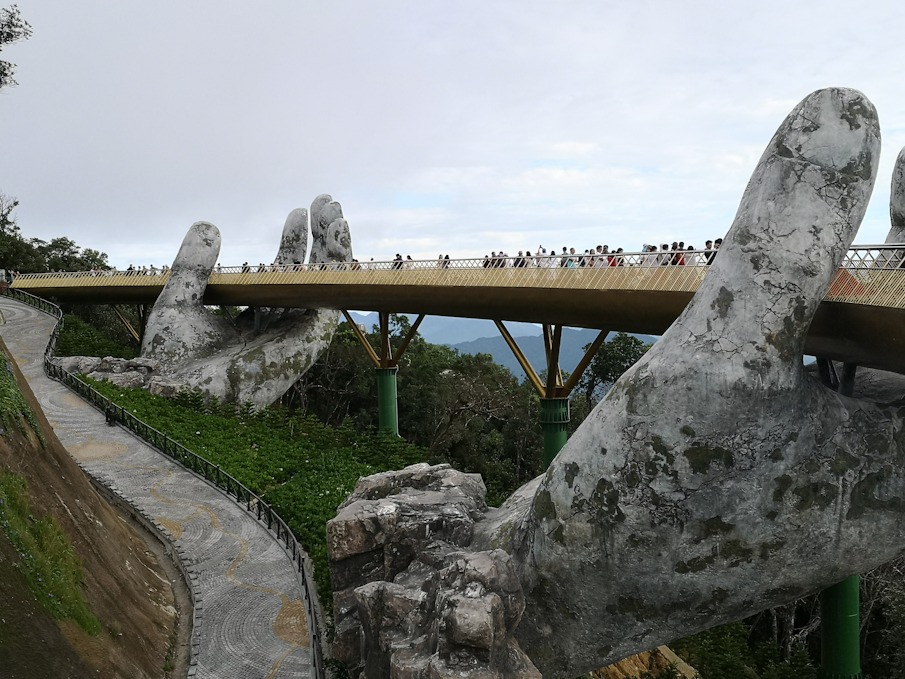
9. The motorbike salesmen
Not actual motorbike sellers, but guys driving around the streets at night on the lookout for foreigners to bother, especially solo male travellers (lucky me), with offers of drugs and/or prostitutes.
As a good boy who’s never done anything wrong in his life, I’ve always declined (at least one of these statements is true). However, I understand that the drugs are usually fake and the prostitutes do not look as advertised (the motorbike pimp will kindly flash photos in your face without being asked to). Also, both drugs and prostitution are illegal in Vietnam – penalties for the former can be deadly.

Where it happens
I mostly received offers in Hanoi, but you’re likely to be approached in any tourist area where there’s nightlife.
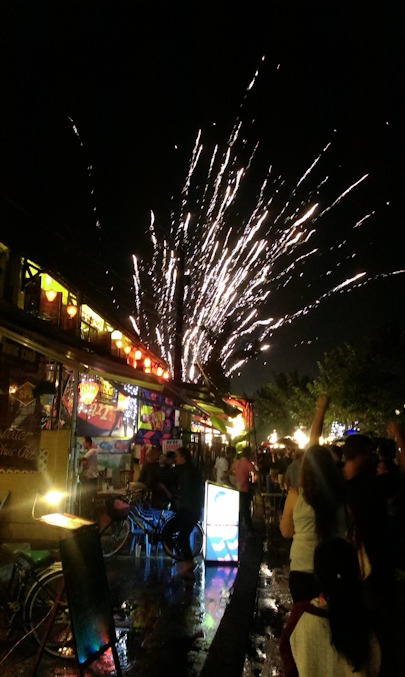
How to avoid
Another instance where you just have to say no and they can’t do anything except be annoying and keep asking until they give up.
10. The imitators and false advertising

A common occurrence with travel companies in Vietnam. Whenever a travel company earns a good reputation, other businesses will open up with similar names and logos, hoping to cash in on unwary tourists. Despite similarities in branding, the imitation will not extend to the quality of service.
The same companies will often offer tours or transport services that do not deliver what they promise. When a sleeper bus is advertised as having onboard toilets and Wi-Fi, it’s not very nice to find out at the start of your 10 hour bus trip from Hoi An to Phong Nha that neither exist.
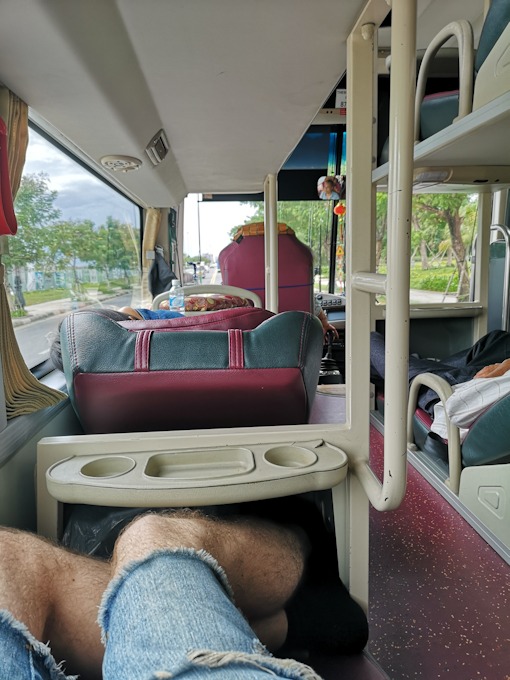
Where it happens
At tour agencies, both online and in physical locations.
How to avoid
Google the companies and check online reviews – there is a lot of information online. Also, if an employee at the tour agency tells you the company with negative/mixed reviews has just got nice new buses, don’t take their unscrupulous word for it.
A few thoughts
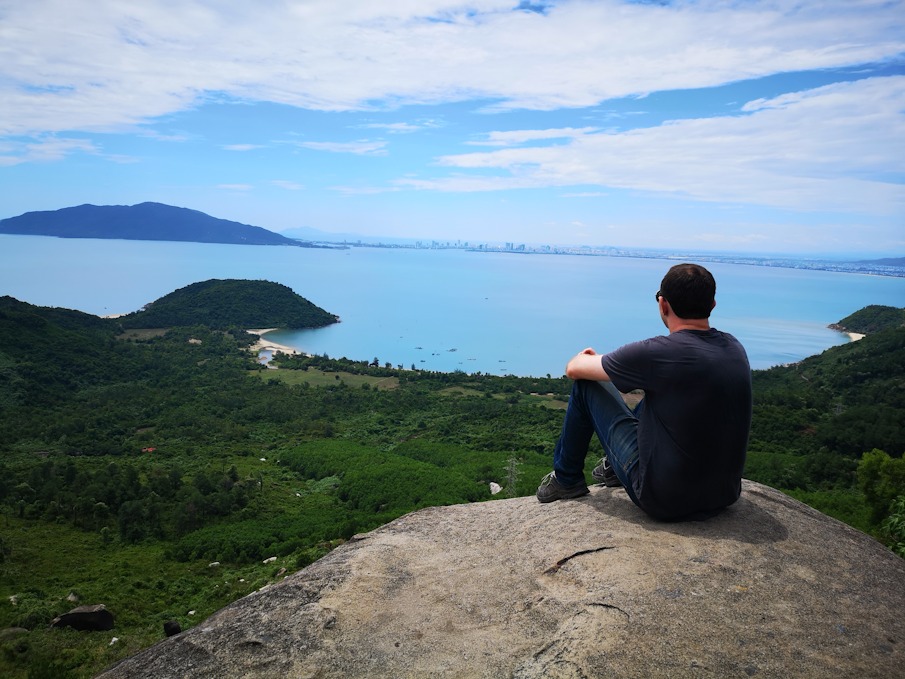
As much as I’ve (half-jokingly) moaned throughout this post, remember that a lot of people around the world cannot afford to travel and that’s true for many in Vietnam. Imagine never having the money to leave your country but seeing thousands of people from the other side of the world come and visit yours, some of whom will be visiting as part of a backpacking trip covering multiple countries and continents. I don’t have any problem paying a bit more than a local, what annoys me is the dishonesty and being treated like an idiot. Don’t change the taxi price on Grab from 50,000 to 500,000 on my phone while I’m looking, don’t pretend to be interested in talking to me when you only want my money – it’s just insulting and disrespectful. When this sort of thing is constantly happening, it becomes extremely frustrating.
Ultimately, a good number of the people that have tried to rip me off will have never left Vietnam due to financial restrictions. I left the UK in October 2018 and have been travelling/working remotely ever since while going from country to country (at least until COVID hit). I’m in a good position and part of the reason for that is simply down to the wealth of opportunities available in my home country.
inally, is it worth visiting Vietnam with these issues?
Yes, absolutely. The country is full of things to see and do and, frankly, you will face tricks like these when travelling to just about any developing country. There are plenty of amazing experiences to be had in Vietnam but nothing is perfect. These issues, while frustrating, are a part of travelling and some of the experiences can be funny to look back on. Along with the photos that are loosely scam related, I’ve scattered a few nicer photos from my trips to Vietnam around this post and this is just scratching the surface of what the country has to offer.
You could probably avoid all or most of these scams/rips offs by booking a controlled, all-inclusive tour around the country but I can’t imagine that being as enjoyable and, in all likelihood, the fancy tour package will cost a lot more than what the local swindlers try and get from you.
